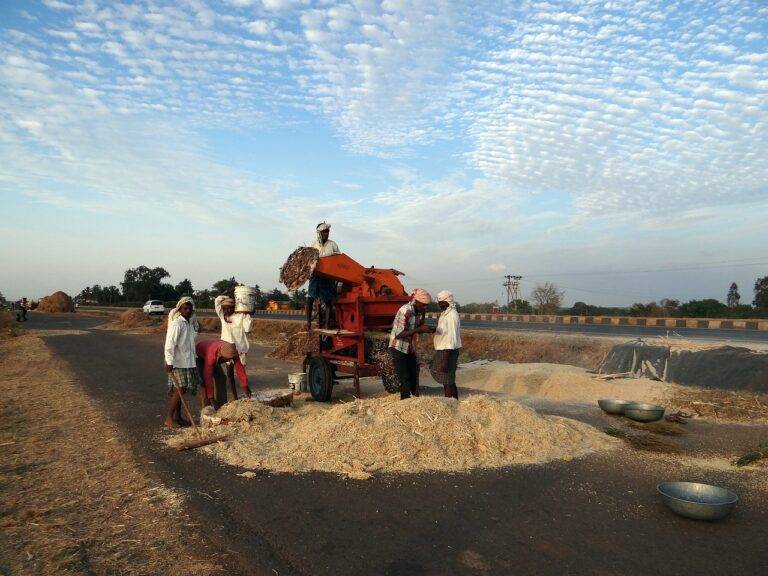Managing Media Relations for Political Events: Betbhai9.com whatsapp number, Radhe exchange id, Lotus365 login
betbhai9.com whatsapp number, radhe exchange id, lotus365 login: Geolocation data is becoming an increasingly important tool in modern election campaigns. With the rise of technology and data analytics, political parties and candidates can now use geolocation data to target specific voters with tailored messages and strategies. In this article, we will explore how to effectively use geolocation data in election campaigns.
Identifying Target Voters
One of the key benefits of using geolocation data in election campaigns is the ability to identify and target specific groups of voters. By analyzing GPS data from mobile devices, campaigns can pinpoint areas with high concentrations of their target demographic. For example, a candidate running for mayor of a city can use geolocation data to identify neighborhoods with a high number of young voters or senior citizens.
Crafting Tailored Messages
Once target voters have been identified, campaigns can use geolocation data to create tailored messages that resonate with these groups. For instance, a candidate running for a local school board position can send messages to parents in specific school districts highlighting their education policies and plans. By tailoring messages to specific groups, campaigns can increase engagement and effectiveness.
Geo-Fencing Events
Another effective use of geolocation data in election campaigns is geo-fencing events. Campaigns can set up virtual perimeters around specific locations, such as polling stations or campaign rallies, to target voters in real-time. For example, a candidate holding a rally in a certain location can send push notifications to voters in the area, encouraging them to attend the event or learn more about the candidate’s platform.
Measuring Effectiveness
Geolocation data also allows campaigns to track the effectiveness of their strategies and messages. By analyzing data on voter engagement, turnout, and response rates, campaigns can fine-tune their tactics for maximum impact. For example, a campaign can track how many voters attended a rally after receiving a geo-fenced notification, allowing them to assess the success of their targeting efforts.
Collaborating with Local Businesses
Campaigns can also collaborate with local businesses to leverage geolocation data for election campaigns. By partnering with businesses in key areas, campaigns can access valuable data on consumer behaviors and preferences. For instance, a candidate running for city council can work with local shops and restaurants to gather insights on residents’ interests and concerns, helping them tailor their campaign messages accordingly.
Using Geolocation Data Ethically
While geolocation data can be a powerful tool for election campaigns, it is essential to use this data ethically and responsibly. Campaigns should be transparent with voters about how their data is being used and ensure that privacy laws and regulations are followed. Additionally, campaigns should prioritize data security to protect voter information from breaches or misuse.
In conclusion, geolocation data offers valuable insights and opportunities for election campaigns to effectively target and engage with voters. By identifying target voters, crafting tailored messages, geo-fencing events, measuring effectiveness, collaborating with local businesses, and using data ethically, campaigns can harness the power of geolocation data to drive success in elections.
—
FAQs
Q: Can geolocation data be used to target voters based on their political preferences?
A: Yes, geolocation data can be used to target voters based on a variety of factors, including political preferences. Campaigns can analyze data on voter behaviors and locations to tailor messages and strategies to specific political demographics.
Q: Is geolocation data legal to use in election campaigns?
A: Yes, geolocation data can be legally used in election campaigns as long as campaigns comply with privacy laws and regulations. It is crucial for campaigns to inform voters about the collection and use of their data and prioritize data security.
Q: How can campaigns ensure the accuracy of geolocation data?
A: Campaigns can ensure the accuracy of geolocation data by working with reputable data providers and regularly updating and verifying the data. Additionally, campaigns can use data analytics tools to analyze and cross-reference multiple sources of geolocation data for accuracy.
Q: Are there any limitations to using geolocation data in election campaigns?
A: While geolocation data can be a powerful tool for campaigns, there are limitations to consider. For example, not all voters may have their location services enabled on their devices, which can impact the accuracy of the data. Additionally, campaigns must be mindful of privacy concerns and ethical considerations when using geolocation data.







